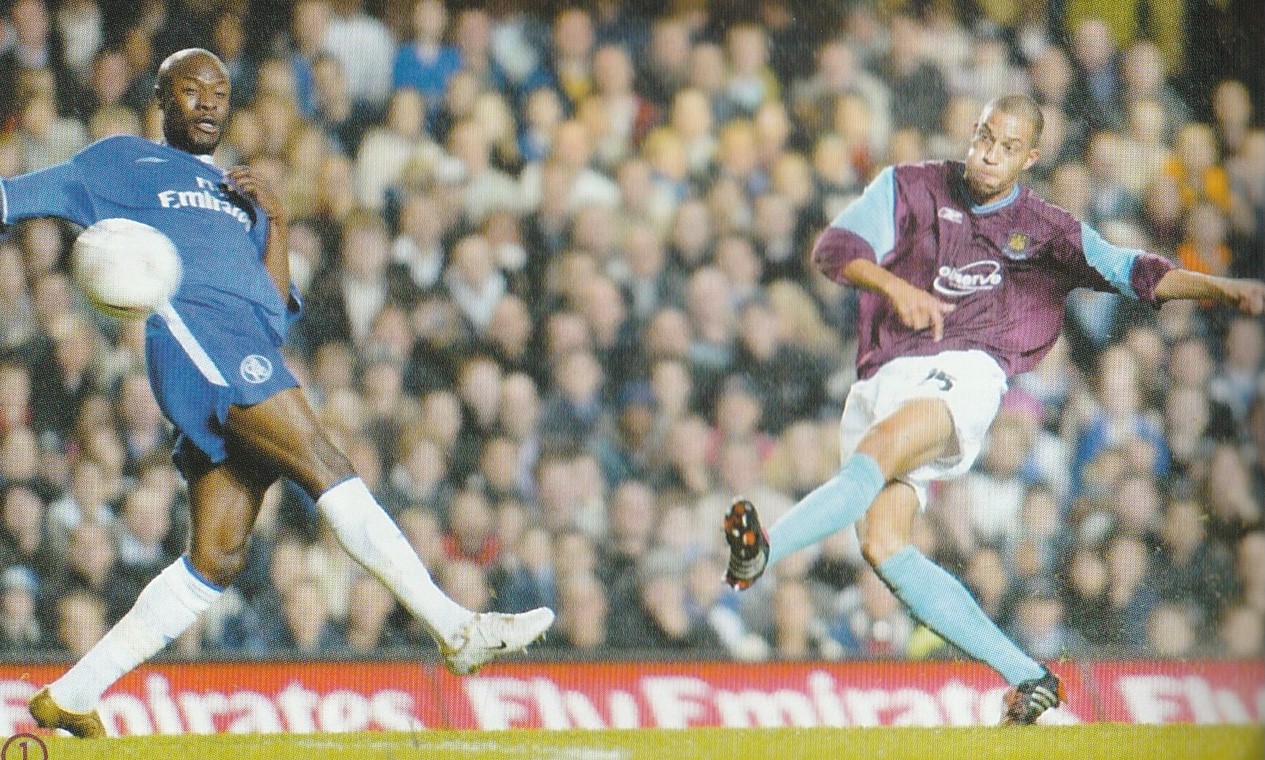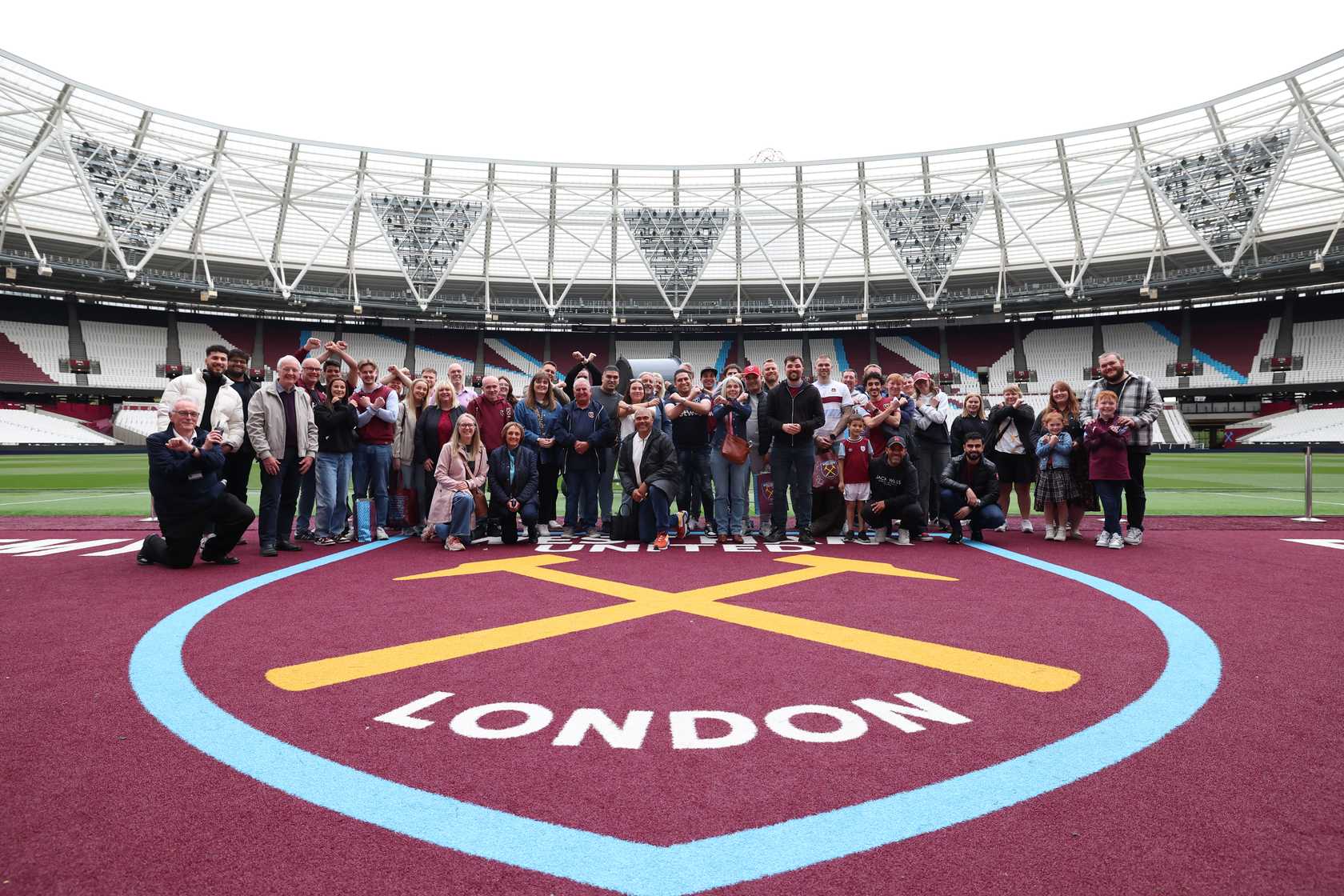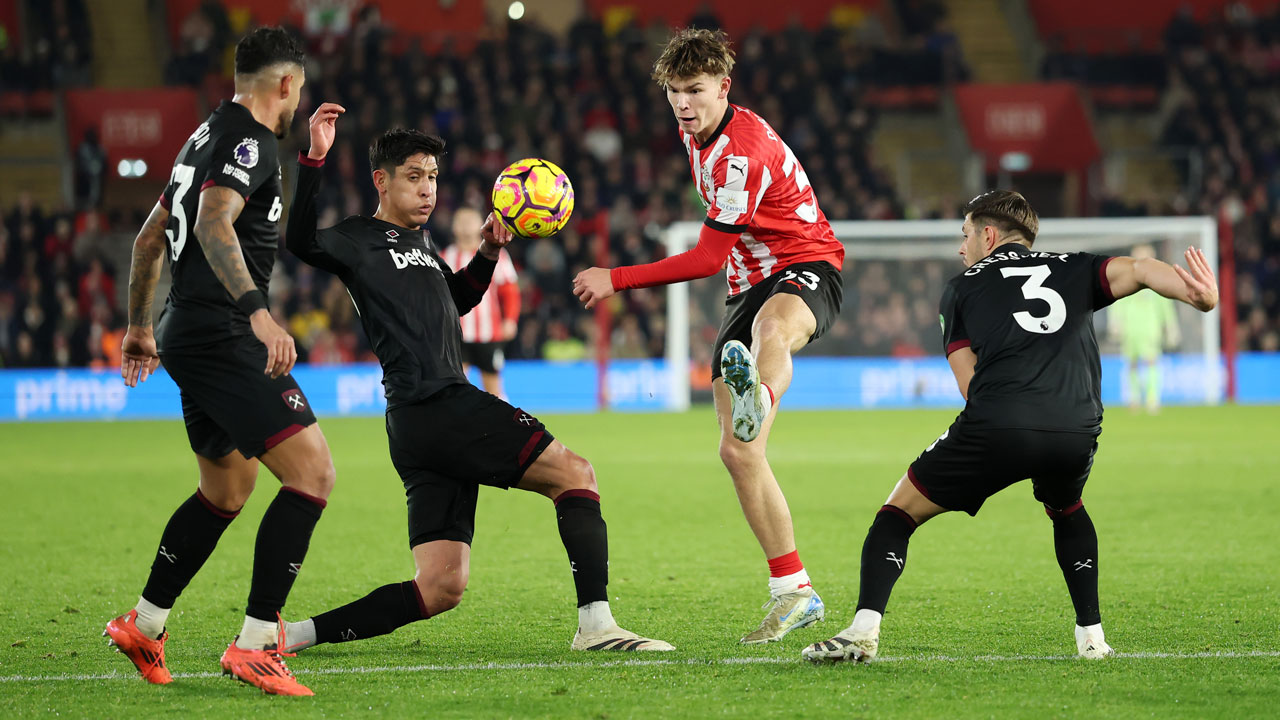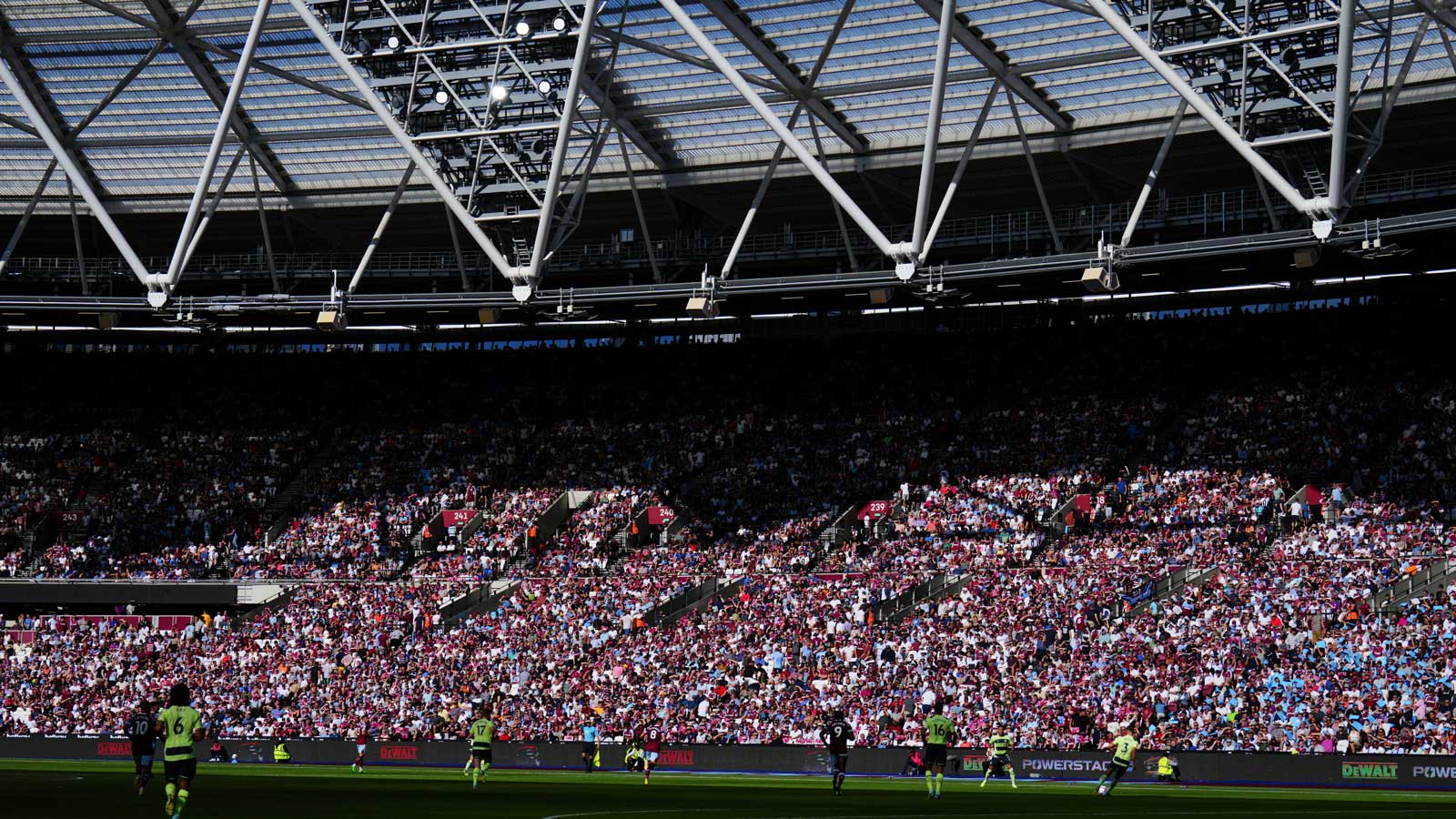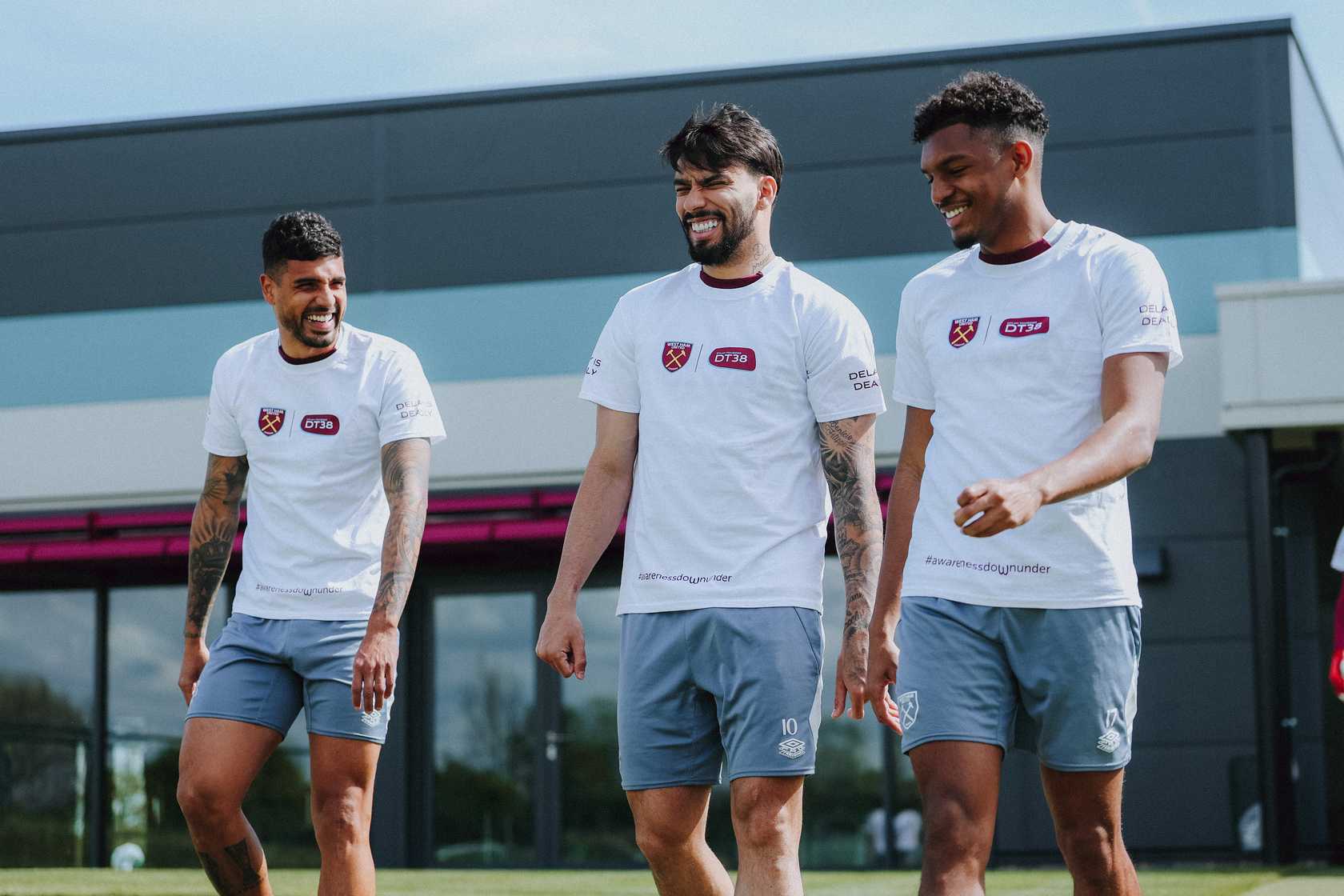Sid Lambert takes us back 20 years to the 2004/05 season, when Alan Pardew’s Hammers secured a rollercoaster return to the Premier League...
As we approached Halloween 2004, three fixtures would determine whether the season might end in horror or happiness for Alan Pardew’s West Ham United.
Sandwiched in between Championship fixtures against strugglers Gillingham and Plymouth – two games where we’d expect maximum points in our quest for promotion – was a League Cup fixture at José Mourinho’s Premier League champions-elect Chelsea. The latter would be a litmus test for whether this was a squad ready to return to the top tier. And, in truth, no West Ham fan was sure of the answer.
Alan Pardew was now 12 months into his rebuild of the team post-relegation and he’d spent a lot of money on the raw materials. Unfortunately, just when you thought he’d constructed some solid foundations, we’d crumble in the face of adversity. After 15 months in the second tier, we’d lost any illusions about strolling to the title. The team needed to strap up their bootlaces and get stuck in. The next seven months were going to be a war of attrition.
We hadn’t played Gillingham at home since 1914, when we beat the Kent side 2-1 and then got inexplicably pumped 4-0 in the reverse fixture a week later. So it was heartening to know that, even 90 years earlier, maddening inconsistency was still the hallmark of a West Ham team.
One man who was desperate to find some consistency in Claret and Blue was Bobby Zamora. The former Brighton and Spurs striker had endured a frustrating start to life in East London. His record read seven goals in 27 games, a strike rate just above the much-maligned David Kelly and Iain Dowie.
To the naked eye, Zamora was a level above the average Championship striker. He was proficient with both feet, had an excellent first touch, and was a menace in the air too. He seemed to have suffered a crisis of confidence at Spurs. The move to the Boleyn was meant to bring stability and first-team football. But Alan Pardew’s constant chopping and changing of the frontline meant Zamora had more partners than Henry VIII.
The Gillingham game was his fourth successive start and finally he found his feet, slotting in an early opener after leaving a defender in his wake. Soon after, he set up Marlon Harewood for the second goal. And just before the break Zamora’s cross-shot was tapped home by Hayden Mullins to ensure a rare comfortable Saturday afternoon at Upton Park.
The win provided a welcome confidence boost ahead of the midweek trip to Chelsea. The Blues had been buoyed by new manager Mourinho. The self-anointed ‘Special One’ had commanded the headlines since arriving in England three months earlier. He’d made Chelsea a ruthless, robotic winning machine. But it was utterly horrific to watch. Mourinho’s side had no interest in entertaining. I’m not saying the Portuguese was a low-risk manager, but if he had his way then all of Rocky Balboa’s fights would have been decided by Scissors, Paper, Stone.
With the Blues already well on their way to the Premier League title, we travelled westbound with limited expectations. Yet, as is so often the way with this club, we summoned up a mighty performance in the most unlikely of circumstances. We took the game to the hosts. Zamora and Harewood were a constant menace up front. Steve Lomas tore into midfield tackles, and Tomáš Řepka was committed in defence. Of course, we knew we were hopelessly overmatched. Asking an ageing Rufus Brevett to man-mark Arjen Robben was like stocking up on sun screen in case of a nuclear war. But every man played his part, and we were unlucky to fall behind to a Mateja Kežman goal.
Then step forward goalkeeper Jimmy Walker for arguably his most famous moment in West Ham colours. The referee awarded a penalty after the sort of clumsy Řepka foul that blighted even his best performances. It gave Frank Lampard a chance to score in front of the massed ranks of travelling Irons. Over the years Lampard made no secret of enjoying goals against his former club. But on this night, it was Walker who celebrated. The diminutive ‘keeper dived low to save the spot-kick and make himself an overnight hero. Though the home side held on for a 1-0 win, there was plenty for the fans to be proud of as they made their long way back on the District line.
I’d followed West Ham long enough to know that after great hope, often came great disappointment. And the trip to Plymouth, just three days after the exertion of Stamford Bridge, had all the makings of a lacklustre defeat. So there was some surprise when Lomas, a man who scored goals with the same regularity as Earth receives a visit from Halley’s Comet, headed in an excellent opener. Sadly tired legs and minds allowed the Pilgrims an equaliser. Nonetheless, four points from two league games and an excellent showing against the best team in the country represented a decent week’s work for Pardew’s men.
We were two points off automatic promotion and starting to click into gear. Halloween had passed without a hitch. Little did we know that just three days later we would put in one of the most horrific performances in recent memory…
Sid has a new book out: “Highs, Lows and Di Canios: The Fans’ Guide to West Ham United in the 90s”. Visit www.thewesthamway.com, or head into the official West Ham store for a rollercoaster ride through one of the most turbulent decades in Claret & Blue history.

